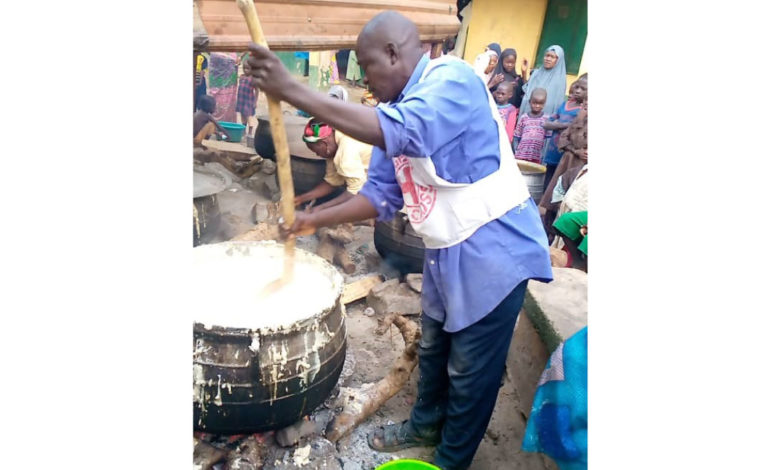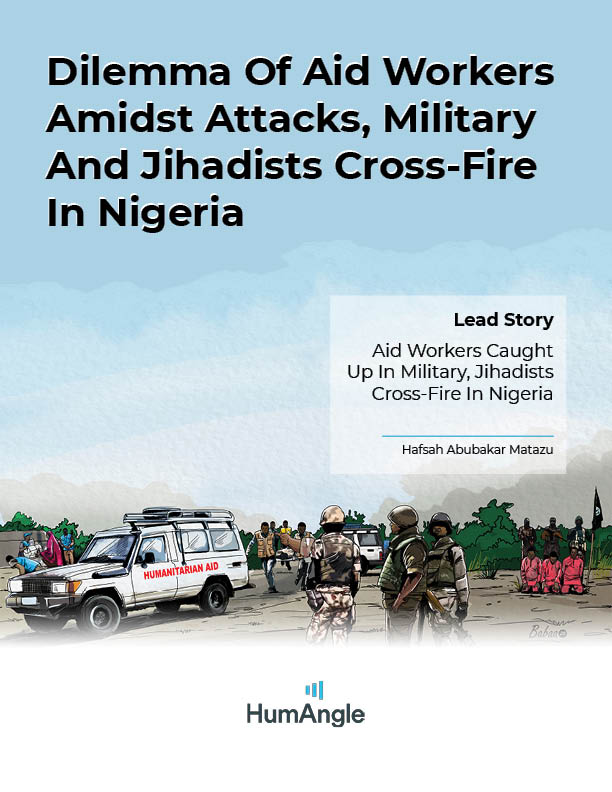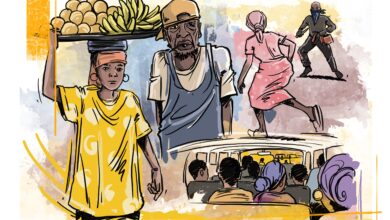UN Pays Moving Tribute To Attacked Humanitarian Workers

The United Nations, to celebrate World Humanitarian Day 2020, paid tribute to humanitarians that have been attacked, killed, wounded or kidnapped in the past year.
According to Humanitarian Outcomes’ Aid Worker Security Database, major attacks against humanitarians in 2018 surpassed all previous years on record.
A total of 483 relief workers were attacked, 125 killed, 234 wounded and 124 kidnapped in 277 separate incidents.
HumAngle reports that this is an 18 per cent increase in the number of victims compared to 2018.
On Wednesday, people all over the world honoured humanitarians – many working in their own communities – who are going to extraordinary lengths in extraordinary times to help women, men and children whose lives are upended by crises and the global COVID-19 pandemic.
In 2008, the United Nations General Assembly designated August 19 as World Humanitarian Day to raise awareness about humanitarian assistance worldwide and to pay tribute to the people who risk their lives to provide it.
World Humanitarian Day was commemorated for the first time on 19 August 2009. This is the eleventh World Humanitarian Day, designated by the UN General Assembly.
It falls on the day of the attack on the UN compound in Baghdad on August 19, 2003, which claimed the lives of 22 people including the Secretary-General’s Special Representative for Iraq, Sergio Vieira de Mello.
Since then, nearly 5,000 humanitarians have been killed, wounded or abducted, and the 2010-2019 decade experienced a 117 per cent increase in attacks compared to 2000-2009.
A surge in attacks against health workers was recorded in 2019, including strikes against medics in Syria and shootings of Ebola workers in the Democratic Republic of the Congo (DRC).
Most of the attacks occurred in Syria, followed by South Sudan, DRC, Afghanistan and the Central African Republic.
Mali and Yemen both saw a doubling of major attacks from the previous year.
The UN has condemned these attacks, and it calls for accountability for perpetrators and justice for survivors. “Relief workers cannot be a target,” it reiterated.
Mark Lowcock, the Under-Secretary-General for Humanitarian Affairs and Emergency Relief Coordinator, said: “To humanitarian workers everywhere doing important, courageous work on the front lines we say Thank You.
“You are saving lives every day, and as new challenges and crises are piling on to existing ones, your perseverance is an inspiration.
“Your protection is also paramount to making sure we can deliver to people most in need.
“The best way to pay tribute to humanitarian workers is by funding their work and ensuring their safety,” he added.
The 2020 World Humanitarian Day comes as the world fights the COVID-19 pandemic.
To pay tribute to the efforts of humanitarians, OCHA and its partners shared the personal stories of some of the #RealLifeHeroes who are stepping up to meet the challenges, particularly local humanitarian workers.
They include refugees who as health workers are playing essential roles in the pandemic response; Ebola health workers who are stepping in to fight COVID-19; and doctors and nurses who continue to provide critical health care to women and children.
“The dedication, perseverance and self-sacrifice of these real-life heroes represent the best of humanity as they respond to the COVID-19 crisis and the massive increase in humanitarian needs it has triggered.
“First responders are often people in need themselves — refugees, members of civil-society organizations and local health workers. They bring food, shelter, health care, protection and hope to others amid conflict, displacement, disaster and disease.
“But humanitarian workers are being tested like never before, struggling with unprecedented movement restrictions and insufficient resources as needs are outpacing funds.
“And all too often, they risk their own lives to save the lives of others,” the UN noted.
Continue reading …
Download the full report here!
Support Our Journalism
There are millions of ordinary people affected by conflict in Africa whose stories are missing in the mainstream media. HumAngle is determined to tell those challenging and under-reported stories, hoping that the people impacted by these conflicts will find the safety and security they deserve.
To ensure that we continue to provide public service coverage, we have a small favour to ask you. We want you to be part of our journalistic endeavour by contributing a token to us.
Your donation will further promote a robust, free, and independent media.
Donate Here





